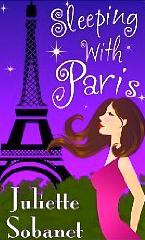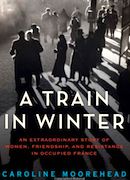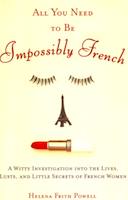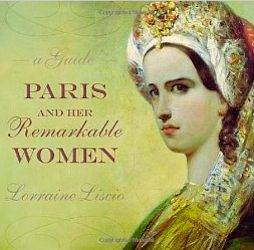About Rosalie
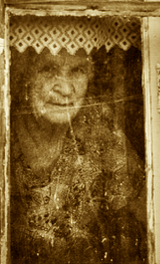
- SUBSCRIBE
- ALREADY SUBSCRIBED?
BECOME A BONJOUR PARIS MEMBER
Gain full access to our collection of over 5,000 articles and bring the City of Light into your life. Just 60 USD per year.
Find out why you should become a member here.
Sign in
Fill in your credentials below.
 He can talk your ear off, talk the squirrels out of the trees, talk a blue streak—or a blue line, a dot, a curlicue, rhombus, hash mark, doodle, blot, or stripe in any color from infrared through ultraviolet, inclusive. Yes, he can. And I’m listening.
He can talk your ear off, talk the squirrels out of the trees, talk a blue streak—or a blue line, a dot, a curlicue, rhombus, hash mark, doodle, blot, or stripe in any color from infrared through ultraviolet, inclusive. Yes, he can. And I’m listening.
He fell into stride with me a minute or two after I had got up from my table where I had finished my coffee and paused to read the plaque to the side of a door on a weary old building announcing the birth on the third floor of someone completely unknown to me, a Parisian hero of the Resistance. And without introduction or preface, he says, “That plaque is not the story.” What is? “Where the Nazis shot him. You’re interested in things like that? I can show you.” Of course, and off we go, with people every minute or two at the most, saying, “Bonjour, Paul,” and with him answering name for name as we make our way. I tell him he’s the mayor of the quartier. He laughs. “My family’s been in the quartier for at least four generations, one more on my mother’s side.”
He slows down to point at a roasted chicken shop where a man is loading in the makings for this evening’s carry-out, including the cut-up potatoes he lays out and levels like gravel across the bottom to soak up the drippings. “That place, that one’s changed a lot. When I was little, they sold hats there, for men and women. But first the men stopped wearing hats, that was in the sixties. And then the women got the same idea. Why wear a hat if your head isn’t cold? You only see hats on special occasions—and it’s the rich who wear them. Crazy people too, you know.” He’s right about that. I see more loonies everywhere wearing hats. Neither of us can figure it. And, he adds, baseball caps don’t count as hats.
After the hats, it was a bicycle store, a greengrocer—“Well, every space has been at one time a greengrocer”—a travel agency specializing in South American travel, a boutique selling briar pipes, “but there was a problem with selling the tobacco for them because of licensing,” a café, a brocante, an electrician, a lingerie store, and a butcher shop that became, gradually as it changed hands three times, the roasted chicken joint, which is, of course, halal.
As with the hats, there was always something. The owner of the bicycle shop left the bikes locked up out on the street at night, and they kept getting stolen. “Greengrocers, there are always too many of them, and you have to have money because if you don’t, you don’t throw away the spoiled produce at the end of the day, and people stop coming.” That seems to be the problem. Something’s always stopping. People, he tells me, at least people from around these streets, stopped going to South America if they ever went before. Men stopped smoking pipes. Woman in Paris stopped wearing girdles and then stockings. And, and, and… And in between the decline of one enterprise and the rise, or at least hopeful grand opening, of the next, the store was usually vacant for a few months at a time.
But people will always eat chicken, right? “Who knows,” he looks gloomy, “maybe the végétaliens will take over the world or just the Chambre de Députés and we’ll all eat leaves and the bark off trees.” Well, the price is cheap enough. “Always a good thing, I agree. A chicken and potatoes are better than leaves, but it’s not a coq au vin, either. This is something I know about because my aunt Rosalie is one of the best cooks in Paris, so I know coq au vin. But the reason I tell you this is that it was on this corner that she met a man more than sixty years ago. Right here,” and he puts his foot down: shoe marks the spot. There is nothing interesting about the corner, the crossing streets are small and carry too much traffic, but nothing else. No plaques on buildings, no statues in sight. “Right here.” Yes?
“Yes, and I will tell you in a minute. Look over there.” Where? “In front of the window of the laverie, across the street, which I can tell you has been there for forty-five years at least. Before that it was a horse butcher.” The good old days. “For some, yes, but that’s where they shot the hero of the Resistance you were reading about.” How do you know? “My grandfather saw it. They almost shot him. He said someone threw a pot of hot water out the window up there”—the next building, over to the right a little—“and distracted the Nazis long enough to let my grandfather and another man escape. The Nazis burned the building down the next day.”
And Aunt Rosalie? “My favorite history. She was a good girl, meaning a Catholic and a virgin, engaged to marry a very boring man. It was on the corner over there that she met a man many years ago who made an indecent proposal. As she likes to say now—she’s long past eighty—she wasn’t exactly sure what he meant, but it sounded more interesting than anything her fiancé ever said to her. So she said yes, and they went to a hotel and made love all night long. The man, my uncle who died six years ago, was so pleased, he married her the same day, or so they told me. It turns out his mother was a famous cook from the southwest, and he had written down all her recipes, because she couldn’t read or write, which he gave to Rosalie. There weren’t many cookbooks in those days. She learned them by heart—and, as she still like to say, her husband never made an indecent proposal to any woman but her after that. And, you see,” he says, “this is a story known by everyone in the quartier.”
And now I know it too and I’m glad, But does he know, I wonder, that the dismal, narrow street we crossed a few minutes ago is named for the upstanding man who insisted on reviewing the bogus conviction of Captain Dreyfus, then astoundingly voted against pardoning him? Does he know that the street intersecting that first one at about forty-five degrees memorializes the politician responsible for universal suffrage in France? Or does he know that the broad avenue over there is named for an agronomist and not for an archeologist, a botanist, an actress, a sailor, a footballer, or a UFO expert with the same family name? He may, but does he care? Would that history have anything to do with him—or with what he believes to be history, the remembered events, the events he knows directly himself or were told to him by people he knew or were told to them by people they knew and knew him too? Better to know the precise place of the encounter or the execution, where you can put your foot down, than to the name the legislator or the date of the general’s famous victory? I ask him.
“Your question is not stupid, but it answers itself. Look…oh, wait. It’s time for an apéro or some wine,” and I think, well, fair enough, and drinks on Joe for the tour and the blue streak of private history. He points across the street. And there we go, straight as two arrows, if arrows can dodge bikes and motos which always scare me more than trucks and buses in Paris, walk on to the terrace of the café where a pretty not quite middle-aged waitress says, “Salut, Paul,” kisses him right cheek, left cheek, and puts us at the table I’d been hoping for, just out of the evening, slanty sun. A minute or two later, she has brought us a bottle of white Mâconnais, and he says, “On me”—and a good thing I am sitting down. We pour, drink, smile. I wait.
“Look, I was saying your question isn’t stupid. But you know the answer already, or most of it. I actually could tell you about the names behind the streets, most of them, but that’s not interesting. They may have been great men and women, but they have become street signs. No one cares about them today, no one has for years. Does anyone crossing rue Cambronne or walking along rue du Temple think of Napoléon’s stupid wars or corrupt mediaeval knights? You understand, Joseph, I read history, I have a lot of books. I have read about your Civil War. That kind of history teaches us concepts, tells us the ideas and often the foolishness that make our societies what they are today. But they don’t tell you about Rosalie—and Rosalie lets you know that sixty years ago, right after the war, right around the corner, people were curious, sexual, desperate to escape from boring marriages, full of adventure. She tells me why to this day I eat better coq au vin, made to the recipe of an illiterate country woman, than you can buy in a Michelin three-star. That’s not worth knowing?”
So, I was wrong, Paul. You aren’t the mayor of the quartier. The curator, maybe, or the docent? “It’s not a museum, and I’m not so important. The janitor, let’s say, trying to keep the place decent, or maybe just the night watchman.” And… and then, after? “I hope for the best. I have a son and two daughters.” In the quartier? “Where else?”
© Joseph Lestrange
© Joseph Lestrange is an American writer who has contributed many stories about Paris life published by BonjourParis, which you can read by clicking on his name.
Photo credit:
“Old Woman” ©sparrow_sparrow
Subscribe for free weekly newsletters with subscriber-only content.
BonjourParis has been a leading online France travel and French lifestyle site since 1995.
Top 100 France-themed books & more: Readers’ Favorites.
Check out these selections about women in France….click on image for details.
Thank you for using our link to Amazon.com…your purchases support our free site.
More in Cafe, Hotels, Monument, Museum, Neighborhood, Nightlife, Paris, Shopping
